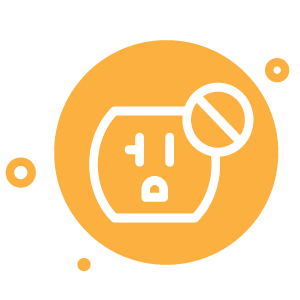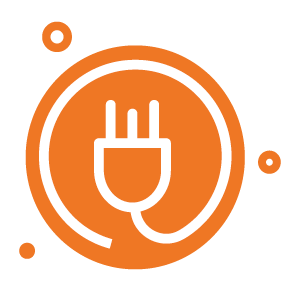Generator safety
Protect yourself • your neighbors • and our crews
Generators can come in handy if the power goes out during a storm. But it’s important to use them properly to keep yourself, your neighbors and our employees safe.
Always follow the manufacturer’s instructions when operating a generator to prevent injury, fire or carbon monoxide poisoning.
 Prevent backfeed
Prevent backfeed
Backfeed occurs when power is sent back through your home’s electrical lines in reverse, creating a dangerous level of electricity that puts our crews at risk of severe injury or death.
Permanent generators:
Make sure an electrician installs a power transfer switch before using a permanent generator. Transfer switches allow you to choose between utility power or backup generator power.
Portable generators:
Never connect generators directly to your home’s wiring or plug into a wall outlet. Consult with a licensed electrician before using.
 Portable generator safety tips
Portable generator safety tips
- Use a heavy-duty extension cord designed for outdoor use to connect appliances to the generator. Make sure the extension cord is free of cuts or tears and has a wattage rating that exceeds the total wattage of items plugged in.
- DO NOT plug a generator into a wall outlet, your home’s breaker panel or where electric service enters your house. This may bypass your home’s built-in circuit protection devices, puts your appliances and electronics at risk of damage, and puts our employees and your neighbors at risk of shock or electrocution.
- Follow safety guidelines when you handle and store generator fuel.
- More safety tips at www.esfi.org.

Carbon monoxide awareness
- Keep portable generators at least 20 ft. away from your home.
- Never operate a generator inside your home or in other enclosed or partially enclosed spaces, including garages.
- Always operate away from doors, windows and vents.
- Direct the exhaust away from your home.
- Symptoms of carbon monoxide poisoning include dizziness, headaches, nausea and fatigue.


